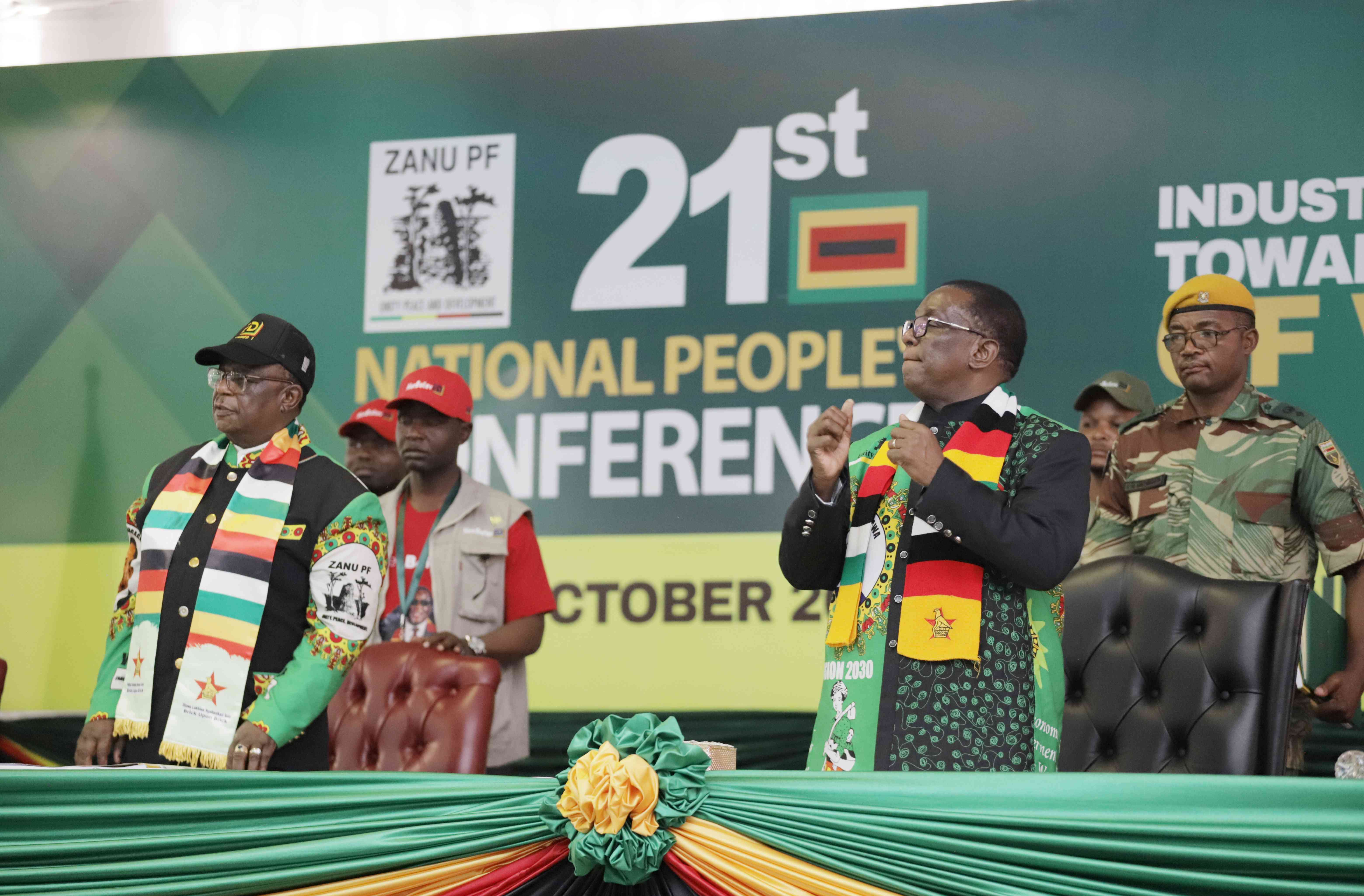
ON the occasion of the International Human Rights Day, Zimbabwe Lawyers for Human Rights (ZLHR) calls upon government to treat all people with dignity and guarantee freedom and access to justice for citizens.
Commemorated annually on December 10, International Human Rights Day is marked to create awareness and mobilise political will to promote respect for human rights and freedoms enshrined in the Universal Declaration of Human Rights (UDHR), which was adopted by the United Nations in 1948.
The UDHR is a global blueprint and a milestone document which proclaims the inalienable rights that everyone is entitled to as a human being.
In 2022, International Human Rights Day is commemorated ahead of the 75th anniversary of UDHR, which is celebrated on December 10, 2023, under the theme Dignity, Freedom and Justice for All.
The theme emphasises the importance of placing dignity, freedom and justice at the heart of human rights.
Since 1948, when the UDHR was adopted, several human rights instruments have been adopted.
The UDHR has served as a foundation for an expanding system of human rights protection.
But the promise of the UDHR, of dignity, freedom, justice and equality in rights, has been under attack with the world increasingly grappling with a myriad of crises ranging from a climate change, diseases, conflicts, war, economic instability, injustices and misinformation owing to inaction by governments and other duty-bearers to protect and safeguard human rights.
- Letters: Govt must introduce social safety nets for unpaid care givers
- Glen View Area 8 fires: Time for sustainable solutions
- Letters: Authorities out of touch with reality
- CSOs scale up anti-PVO Bill fight
Keep Reading
In Zimbabwe, violations of citizens’ rights reverberate across the country with the exercise and enjoyment of human rights under sustained assault by both State and non-State actors.
In recent months, Zimbabwe has witnessed an exponential regression on human rights with an unprecedented assault of citizens’ basic rights and freedoms and promulgation of retrogressive laws.
All this is taking place despite Zimbabwe being a member of the United Nations which comes with obligations to respect and fulfil commitments contained in the UDHR and numerous other voluntary commitments agreed to by government by virtue of being a State party to several regional and international legal instruments.
ZLHR is greatly concerned that by enacting repressive pieces of legislation such as the Private Voluntary Organisations (PVOs) Amendment Bill and the Criminal Law (Codification and Reform) Amendment Bill, which will criminalise conduct perceived to “undermine” the country’s “sovereignty and national interests”, government is seeking complete control of civil society and effectively make organisations its extension and prescribe patriotic conduct, which ought to be an intrinsic feeling and not a legislated responsibility.
To restore dignity, freedom and ensure access to justice for all, ZLHR urges government to:
- Act in good faith and protect, promote and uphold human rights provided in the UDHR and other legal instruments including fully aligning laws to the Constitution;
- Cease curtailment and the assault on citizens’ fundamental rights and freedoms and allow them to enjoy and exercise their right to peaceful assembly, association and free expression;
- Withdraw the PVOs Amendment Bill from Parliament and stop processes to enact the Criminal Law (Codification and Reform) Amendment Bill.
- Stem political violence and inculcate a culture of tolerance and non-violence in settling disputes ahead of 2023 general elections.
ZLHR
Govt must ensure enjoyment of human rights
DECEMBER 10 was Human Rights Day and Vendors Initiative for Social and Economic Transformation (Viset) on Saturday joined the world in celebrating the day, whose 2022 theme was Dignity, Freedom and Justice for All.
The day was an occasion to create awareness and mobilise political will to promote respect for the rights and freedoms enshrined in the Universal Declaration of Human Rights adopted by the United Nations General Assembly in 1948.
In keeping with this year’s theme, there can be no dignity, freedom, and justice, in the absence of rights such as affordable healthcare, education, social protection, food and access to safe drinking water and sanitation for all.
At a time when we are grappling with the issue of unpaid care and domestic work among women and the girl child, it is important to acknowledge the negative impact this has in attaining the lofty ideals of human rights for all.
Many persons with disabilities also face challenges in accessing the most basic of services and when advocating for these, they are often viewed as irritants.
In Zimbabwe, and the informal economy in particular, lack of human rights literacy among law enforcement agents is an issue that requires urgent redress.
Oftentimes in the discharge of their duties, we have seen the wanton abuse and harassment of informal traders, with cases of physical and sexual abuse, confiscation of goods and bribery often going unreported owing to lack of political will in addressing the malpractices.
On this occasion, we call upon government to commit itself to ensuring that all public officials are conversant with what human rights are, and that everyone irrespective of social standing, political affiliation, gender and sexual orientation is entitled to dignity freedom and justice.
Viset acknowledges the great work that colleagues such as ZimRights undertakes in communities, not only through awareness campaigns, but also in ensuring access to documents such as birth certificates and identity cards, which has greatly assisted our constituencies to register to vote.
Indeed dignity, freedom and justice for all is attainable in our lifetime. - Viset
Africa must industrialise to avoid raw material export trap
INDUSTRIALISATION is a safe route to take if African countries want to have rapid economic growth, but it should be inclusive and sustainable, and contribute to generation of more jobs, reduce social inequalities and eradicate poverty.
The recommendation is that bearing in mind the reality and economic structure of the countries, there should be a strategy for inclusive economic growth.
Obviously agriculture and agribusiness will be the gateway to the structural transformation of the economies of African countries through industrialisation.
The modernisation of agriculture will allow the revolutionary increase in productivity and the income of economic actors involved, including the additional availability of food and raw materials for the country’s manufacturing industry.
A country without a strong national industry will either be hardly developed or economically independent as it will be eternally stuck in the raw materials trap and vulnerable to the volatility of commodity prices on the international market.
To industrialise a country is not a one-sector task or that of governments only.
There is need for a vision and a consistent long-term strategy where joint and complementary efforts to governments are articulated by the private sector, civil society, institutions of training and investigation, co-operating partners, financial institutions, all the living forces of society and national economic systems.
Expectations should not be inflated even in relation to minerals and hydrocarbons.
The bet should be on the transformation of valuable natural resources in the country, aggregating value in place of exporting primary products.O Economico
IN response to ‘Africa needs transformative leaders’, JOE MOYO says: Almost the whole of Africa is a mess.
MONIQUE VANRHYN says: African countries have similar problems.
IN response to Her Majesty Empress Auxillia, TRUST M SITHOLE says: They never learn. Former First Lady Grace Mugabe gained too much clout up there and dragged her husband, the late former President Robert Mugabe down.
VITAL VEE MASIKATI says: I said this in February 2018 to some colleagues. Former First Lady Grace Mugabe took long to be in the spotlight, but the current First Lady Auxillia Mnangagwa came into the spotlight the moment her husband Emmerson Mnangagwa took over as President.
MUZUKURU MABOTA says: I wonder where she was with her charitable donations since 1980.
IN response to Audit exposes massive rot in Social Welfare ministry, JEREMIAH MABHENA says: When conducting audits, expose the weaknesses and make recommendations for the arrest of the culprits. The problem is that audit results are publicised every year, but no tough action is taken, leading to increased misconduct in government departments.
POSSENTI MKUMBUZI says: Where are the ex-combatants who sacrificed to go to war? Can’t they see that their sacrifices are being abused by a few politicians at the expense of the whole nation? Are they waiting to be bribed again?
IN response to 95% Zimbos have no medical aid, SIBANDA JABULANI says: How can people manage to pay for medical aid while failing to buy food?
IN response to Beitbridge Border Post ‘dumps’ Zimdollar, MUYENGWA TONDERAI says: What happened to the strongest currency in the region?
IN response to Zera penalises 12 fuel dealers, ELIZABETH SHARPLES says: It’s criminal for sure. All fuel dealers should be under strict supervision. Fuel tests may need to be done on a more regular basis instead of once a year.
NANETTE ALLMARK says: Fined for mixing fuel with water? They should be deregistered and prosecuted. It’s criminal.








